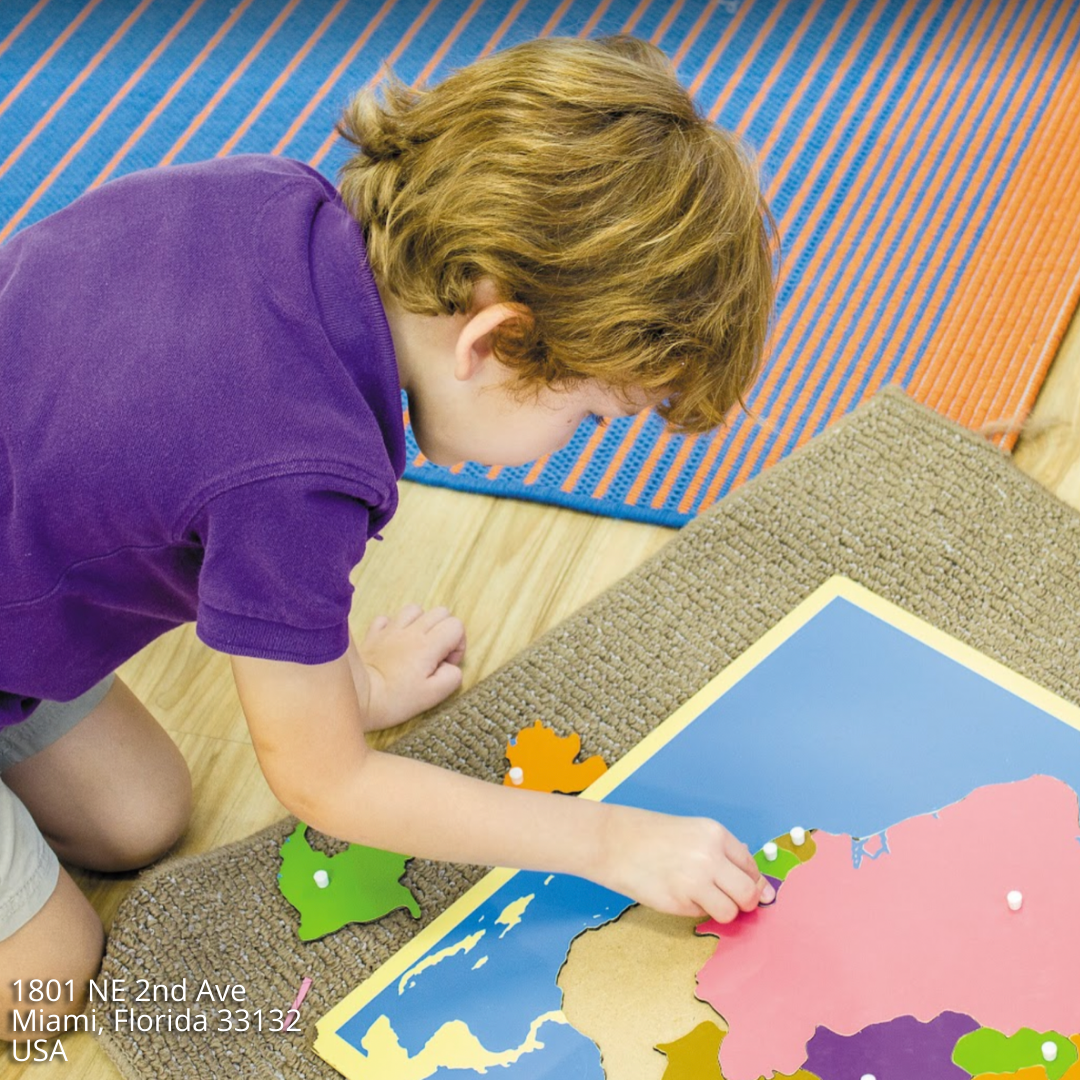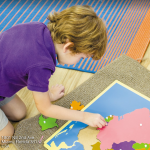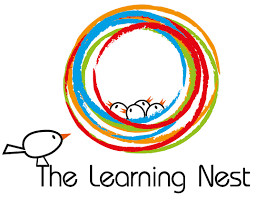The Learning Nest provides quality preschool and kindergarten programs for kids in Miami, FL.
Montessori philosophy is one of the most popular and effective teaching systems that help children develop in their own way and in their own timeline.
In this article, The Learning Nest, Miami, FL, discussed the pros and cons of the Montessori teaching philosophy to help you make informed choices and choose the right school for your kids.
What is Montessori's Philosophy?
Montessori is a unique educational philosophy developed by Dr. Maria Montessori in 1929 with the core aim of training kids to be independent.
The Montessori philosophy uses a hands-free and self-learning approach to help children discover and explore knowledge and develop their potential. This teaching philosophy supports experiential learning in an environment designed to help kids develop their creativity.
Teachers who use the Montessori philosophy practice the child-centered learning approach in their teaching. They train each child as an individual, helping them discover new interests while developing their skills and abilities.
Kids who learn under the Montessori method learn through their own experience and at their own pace. They are given tasks that will enable them to work in groups and as individuals while they learn and discover more about the world and themselves.
Pros of Montessori Philosophy
The Montessori philosophy prepares your kids for adulthood and sends them into the world with skills that matter. Other pros of the Montessori philosophy include the following:
1. Emphasis on Child-led Learning and Exploration
The Montessori philosophy places emphasis on allowing kids to learn at their own pace and in their own style, without restrictions.
The teacher provides the kids with materials, activities, and skill sets they need to develop, and the kids are allowed to explore these activities and learn at their own pace, with little limitations.
The kids in Montessori schools are never forced to learn anything. Instead, they are allowed to explore and learn whatever interests them. This will enable them to develop their self-confidence.
2. Focused on Individualized Instruction and Personal Growth
Under the Montessori system, children are taught on a one-on-one basis, with a focus on self-paced learning and personal growth.
Teachers in Montessori-based schools understand that children vary in development and learning; hence, they allow each child to grow independently.
The Montessori system focuses on building independence and competence in your children as they grow into adulthood.
3. Use of Hands-On Materials and Sensory Experience
Montessori-based schools are designed to allow children to dictate their own learning through the hands-on use of materials and objects. Rather than just reading, teachers encourage the pupils to try out activities and learn through their experience.
This system allows the kids to gain more knowledge about the subject matter by participating in activities such as puzzle-solving, painting, building blocks, and solving problems.
The teachers will introduce your kids to essential life skills through their everyday activities, such as dressing, washing hands, and brushing their teeth.
4. Encourages Independence, Self Discipline, and Responsibility
The beauty of the Montessori teaching technique is that it encourages independence and responsibility in kids. Through the independent use of resources, kids can learn to be responsible for themselves and develop self-discipline.
Kids are taught to care for themselves, respect others, and learn from their past experiences. At the end of their school year, your kid will be prepared for adulthood with self-discipline and excellent communication skills.
Cons of Montessori Philosophy
Even with its many advantages, the Montessori teaching philosophy might not be the perfect choice for some parents. Some reasons that could drive your family away from this approach are:
1. Limited Teacher Guidance and Structured Curriculum
A Montessori teacher is less like the traditional idea of an instructor, and more like a gentle guide. They don’t consider it their job to give a child information. They rather lead children in the general direction and give them the tools they need to find the information themselves. You won’t find them in the front of the classroom leading a lesson. If your family is looking for a more traditional, structured approach, this may not be the right school philosophy for you.
2. Emphasis on Individualism Over Group Learning
Although children are encouraged to complete some tasks in teams or small groups, the Montessori philosophy does encourage individualized learning over group work. If you are looking for a more structured, project-based approach, in which group work is more frequent, you may want to consider other school methods.
4. Limited Affordability
Montessori schooling usually comes at a higher cost than traditional schools due to the utilization of specialized materials, teachers with extensive training, and smaller group settings. This can lead to difficulties for some families who have limited resources or live in areas where Montessori Schools are scarce.
How to Implement Montessori Philosophy with a Child
Implementing a Montessori system into your home and parenting will help to form a firm foundation for Montessori teaching for your child. Some of the ways you can implement the Montessori philosophy in your child include the following:
1. Introduction of Montessori-Inspired Activities and Materials at Home
Introducing practical activities into your home will encourage your kids to learn through hands-on experience and explore new concepts. Encourage your kids to participate in Montessori-inspired activities such as classifying items, cleaning windows, and engaging maps of the world and the country.
2. Use of Child-sized furniture and Tools to Encourage Independence
Introduce child-sized furniture and tools into your home to encourage your kids to move around easily and get things done independently. Investing in smaller tables and chairs, mirrors, toys, and other tools will help them develop their self-confidence,
3. Incorporation of Sensory Experience and Hands-on Learning
When introducing the Montessori philosophy to your child, incorporate sensory games and activities into their daily activities to improve their sensory experience. Allow them to play games and partake in activities that increase their creativity and curiosity. Also, allow them to handle activities independently and learn from their experience.
4. Encouragement of Self-Directed Learning and Exploration
Self-directed learning allows your kid to solve problems and complete tasks with little or no supervision. To implement Montessori teaching in your kids, encourage them to develop self-directed learning and explore different activities and skills. Praise your kids for their efforts rather than success, and allow them to play freely.
Choosing the Right Montessori School for Your Kid
If you want to select the right Montessori school for your kid, there are specific steps you must take and factors to consider, especially the school’s practice, mission, and vision.
Read on to learn more factors to consider to select the right Montessori school.
Factors to Consider When Selecting a Montessori School
Some of the factors you must consider when choosing a Montessori school for your kid include the following;
- The school certification
- Experienced Teachers and staff
- High-quality Montessori materials such as movable alphabets, puzzle maps, and math checkerboards.
- A well-designed Montessori learning environment
- Dedicated work and playtime
Questions to Ask When Evaluating Potential Schools
When selecting a Montessori school, you need to evaluate the school to ensure that they practice true Montessori principles in their teaching. Some of the questions to ask when evaluating potential schools include the following;
1. Are they a member of the American Montessori Society?
Any school can add “Montessori” to its name, but one way to verify that a school is truly a Montessori school is through its membership in the American Montessori Society. While their membership doesn’t guarantee that they practice standard Montessori policies, knowing that your selected school belongs to AMS gives you confidence in their practice.
2. Are Their Staff Trained and Certified
Anybody can teach preschool students, but only certified ones can teach using the Montessori philosophy. Before selecting a school, ask for their teacher’s certifications and training to ensure they meet the required standard.
3. What Programs Do They Offer?
If you are searching for a Montessori preschool for your kid, you will also need a Montessori kindergarten when the child finishes preschool. Ask the school if they offer bilingual kindergarten in Miami, FL. If they don’t, the school authorities can recommend a suitable school where you can enroll your child in kindergarten education.
How to Evaluate the School’s Implementation of the Montessori Philosophy
Asking the right questions may not be enough to evaluate a potential school. You also need to visit the school and evaluate its practices.
When visiting a potential school, you should evaluate its teaching style and classroom setup. Ask if the teachers practice hands-free and self-paced learning or not. Also, check the class age ratio to ensure that the school practices a mixed age ratio, as this is a significant characteristic of Montessori philosophy.
Finally, ensure that the school has Montessori learning equipment and a dedicated work period when the kids are allowed to carry out activities.
Conclusion
The Montessori philosophy is one of the best philosophies that will help to prepare your child for life beyond preschool and kindergarten. However, it has its own share of cons and pros, which you must consider carefully.
When you choose a certified Montessori school like The Learning Nest (TLN) in Miami, FL, you can rest assured that your child will receive the best education that will adequately prepare them for adulthood.
About The Learning Nest
With over three decades of existence, TLN is one of the leading preschools and kindergartens in Miami, FL. They aim to provide children with a fun, healthy, and safe environment to develop self-confidence, independence, enthusiasm, responsibility, and leadership.
They also use different philosophies, including the Montessori philosophy, to approach each of their programs, and their earning environment fosters respect and compassion, allowing students to become productive members of their family community, society, and the world.
For inquiries about their programs, contact The Learning Nest at (786) 796-8563 or visit their website.






























